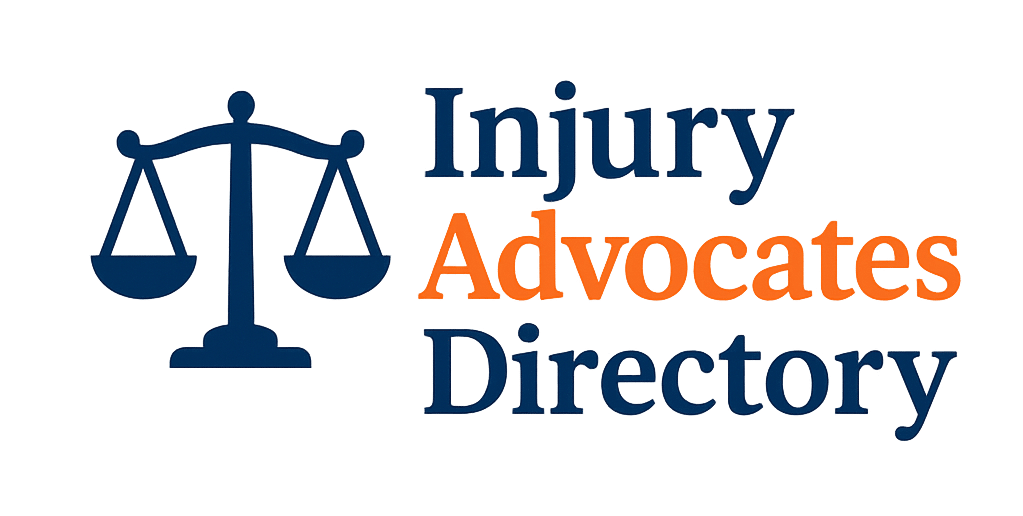Understanding personal injury law is essential for anyone who may find themselves in a situation where they need to file a claim. This guide offers a comprehensive overview of personal injury laws, helping you to grasp your legal rights and the compensation options available. From types of claims to the legal process, we cover everything you need to know.
Whether you’re a plaintiff or simply looking for information, this guide will equip you with the knowledge to navigate the complexities of personal injury claims. Let's dive into the details!
Understanding personal injury law: what you need to know
Personal injury law, also known as tort law, involves cases where an individual suffers harm due to someone else's negligence or intentional actions. This area of law encompasses a wide variety of incidents, including car accidents, medical malpractice, and slip and fall cases.
The primary goal of personal injury law is to provide compensation to victims for their injuries, medical expenses, lost wages, and emotional distress. Understanding the nuances of this law is crucial to successfully navigate your case.
Many personal injury claims are based on the principle of negligence. In these cases, the injured party must prove that the defendant failed to exercise a reasonable standard of care, leading to the injury. Familiarizing yourself with these concepts will empower you to make informed decisions throughout the legal process.
What are the common types of personal injury claims?
Personal injury claims can arise from various situations, each with unique characteristics. Some of the most common types include:
- Car accidents: Frequently caused by negligence, involving drivers who violate traffic laws.
- Medical malpractice: When healthcare professionals fail to provide the appropriate standard of care, leading to patient harm.
- Slip and fall incidents: These occur in public or private properties where unsafe conditions lead to injuries.
- Workplace accidents: Injuries sustained while on the job, often requiring specific workers' compensation claims.
- Product liability: Claims against manufacturers or sellers for defective products that cause harm.
Each type of claim has its own legal nuances and requirements. Understanding these differences is essential for effectively pursuing your case.
How does the legal process for personal injury work?
The legal process for personal injury cases typically involves several key steps. Initially, a victim must consult a personal injury attorney to evaluate their case and gather relevant evidence.
Once the attorney has assessed the case, they will assist in filing a formal complaint in court. This document outlines the plaintiff's allegations against the defendant and the damages sought. Following this, the discovery phase begins, where both parties exchange evidence and witness testimony.
Another critical aspect is the burden of proof. The plaintiff must demonstrate that the defendant's actions caused their injuries, which often requires substantial evidence.
If the case does not settle during negotiations, it may proceed to trial, where both sides present their arguments before a judge or jury. Understanding this process is crucial for anyone involved in a personal injury claim.
What damages can you recover in a personal injury case?
In personal injury cases, various types of damages can be recovered, which may include:
- Medical expenses: Costs for hospital stays, surgeries, and any necessary ongoing treatment.
- Lost wages: Compensation for income lost due to the inability to work after the injury.
- Pain and suffering: Damages for emotional distress and physical pain experienced.
- Punitive damages: Additional penalties imposed to punish the defendant for particularly egregious behavior.
Each of these categories can significantly impact the total compensation awarded to the plaintiff. It’s crucial to thoroughly document all related expenses to ensure you receive fair compensation.
How to choose the right personal injury attorney?
Selecting the right personal injury attorney is critical to the success of your case. Here are some key considerations:
- Look for an attorney with specific experience in personal injury law.
- Check their track record of successful settlements and verdicts.
- Consider their communication style and whether they are readily available.
- Review client testimonials and recommendations.
A knowledgeable attorney can guide you through the complexities of your claim, ensuring that your rights are protected throughout the process.
What should you do immediately after an accident?
Taking the right steps immediately following an accident can significantly impact the outcome of your personal injury claim. First, ensure your safety and seek medical attention if necessary. Document the scene by taking photos and collecting witness statements, which can serve as critical evidence later.
Next, contact a personal injury attorney to discuss the particulars of your case. They can help you understand your rights and guide you on the best course of action. Additionally, avoid discussing the accident details with insurance companies without legal counsel, as this can jeopardize your claim.
How can you maximize your personal injury compensation?
Maximizing your personal injury compensation involves several strategic actions. First, keep detailed records of all medical expenses, lost wages, and any other costs related to the injury. This documentation will bolster your claim.
Furthermore, understanding the nuances of personal injury compensation can aid in negotiations. Consider consulting with your attorney about the potential for punitive damages if applicable.
Engaging in effective negotiation strategies can also lead to better settlement offers. Your attorney can provide valuable insights into how to approach this aspect of your case.
Related questions about personal injury law
What is personal injury law?
Personal injury law is a legal framework that allows individuals to seek compensation when they are harmed due to another party's negligence or wrongful actions. This can involve various incidents, including accidents, medical errors, and intentional harm.
How long do you have to file a personal injury lawsuit?
The time limit for filing a personal injury lawsuit varies by state but typically falls within two to three years from the date of the incident. It’s important to consult an attorney as soon as possible to ensure compliance with the statute of limitations.
What should you do after an accident?
After an accident, you should prioritize safety and seek medical attention. Additionally, documenting the scene and gathering witness information is crucial. Lastly, consult with a personal injury attorney to discuss your legal rights and options.
How can you protect yourself from personal injury claims?
To protect yourself from personal injury claims, practice safety measures such as adhering to traffic laws and maintaining safe conditions on your property. Additionally, obtaining liability insurance can provide financial protection against potential claims.
How can you prevent personal injuries?
Preventing personal injuries involves taking proactive measures such as maintaining a safe environment, using protective gear when necessary, and staying vigilant about potential hazards. Education on safety practices is also beneficial.

